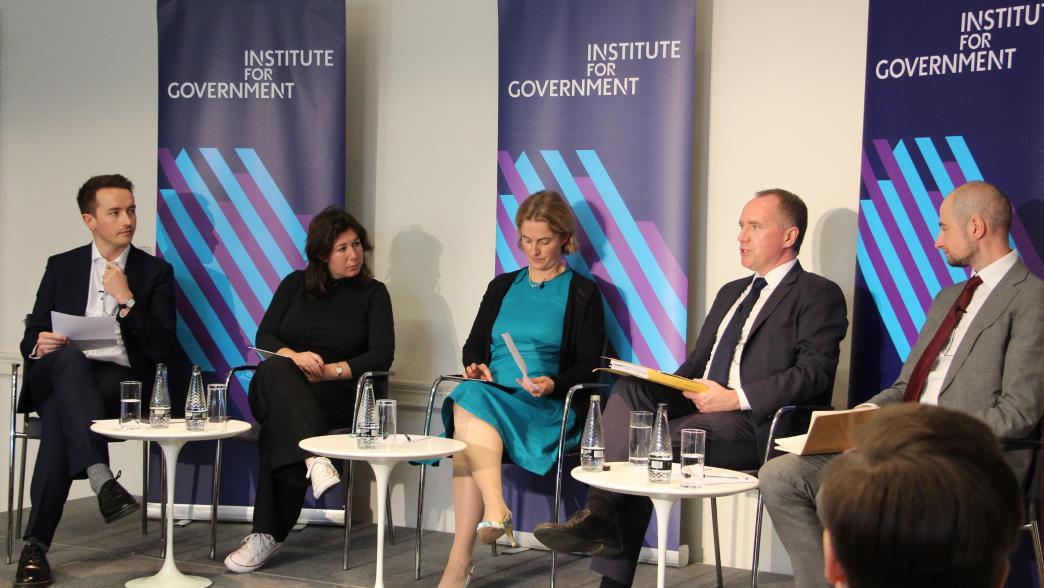What does the 2023 autumn statement mean for UK fiscal policy?
Following the autumn statement, an IfG event – featuring OBR's Richard Hughes – assessed the chancellor’s announcements.

Watch the event
Listen to the event
After Rishi Sunak used the recent Conservative Party Conference to pitch himself as the ‘change’ candidate, the autumn statement on 22 November was Jeremy Hunt’s first opportunity to set out the government’s new tax and spending plans. But what the prime minister and chancellor can offer will in part be shaped by the new economic and fiscal forecasts they were given by the Office for Budget Responsibility (OBR), the UK’s independent fiscal watchdog.
So, what does the autumn statement reveal about this government’s approach to economic and fiscal policy? How has the economic and fiscal outlook changed since March and how might that shape the general election campaign? Does the government have any new plans to try to boost growth and household incomes? What do the government’s public spending plans look like – and are they plausible?
To explore these questions and more, our expert panel included:
- Anoosh Chakelian, Britain Editor of the New Statesman
- Stuart Hoddinott, Senior Researcher at the Institute for Government
- Richard Hughes, Chair of the Office for Budget Responsibility
- Thomas Pope, Deputy Chief Economist at the Institute for Government
The event was chaired by Hannah White, Director of the Institute for Government.
Follow us on X (formerly known as Twitter) @ifgevents and join the conversation using #IfGautumnstatement.
Our experts

Hannah White
Director and CEO

Stuart Hoddinott
Senior Researcher

Thomas Pope
Deputy Chief Economist

Gemma Tetlow
Chief Economist

Olly Bartrum
Senior Economist
- Topic
- Public finances
- Political party
- Conservative
- Position
- Chancellor of the exchequer
- Administration
- Sunak government
- Department
- HM Treasury
- Public figures
- Jeremy Hunt Rishi Sunak
- Publisher
- Institute for Government